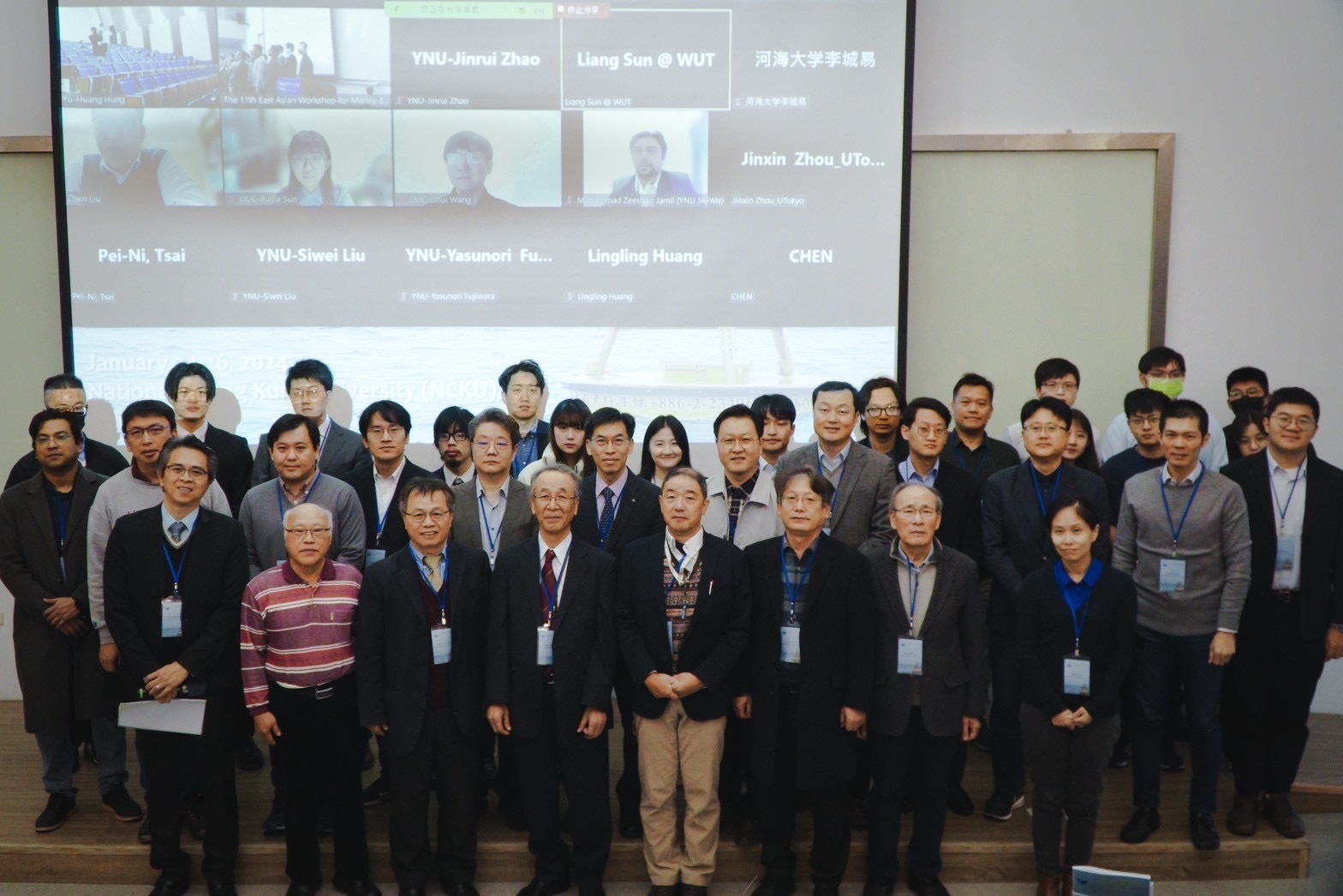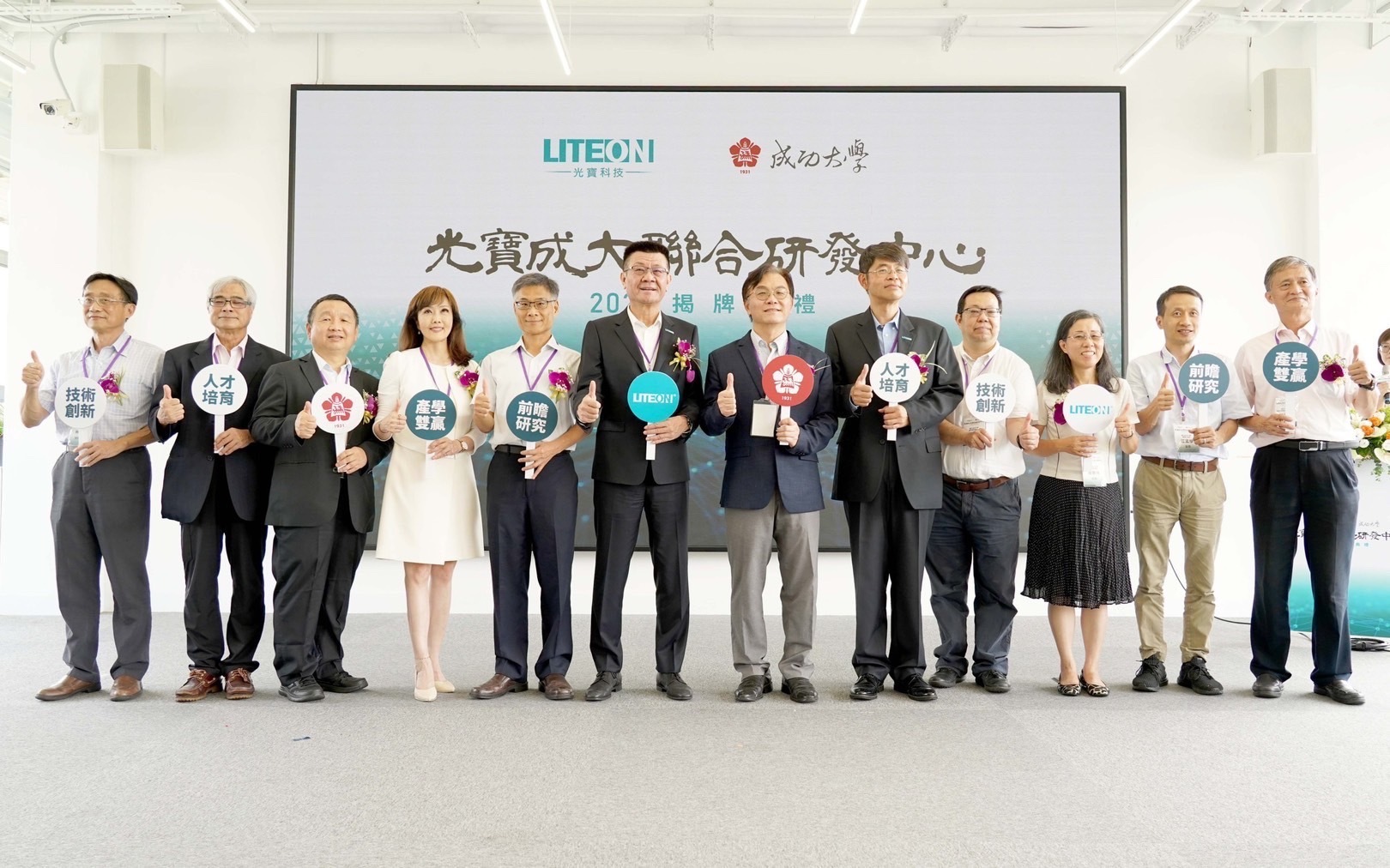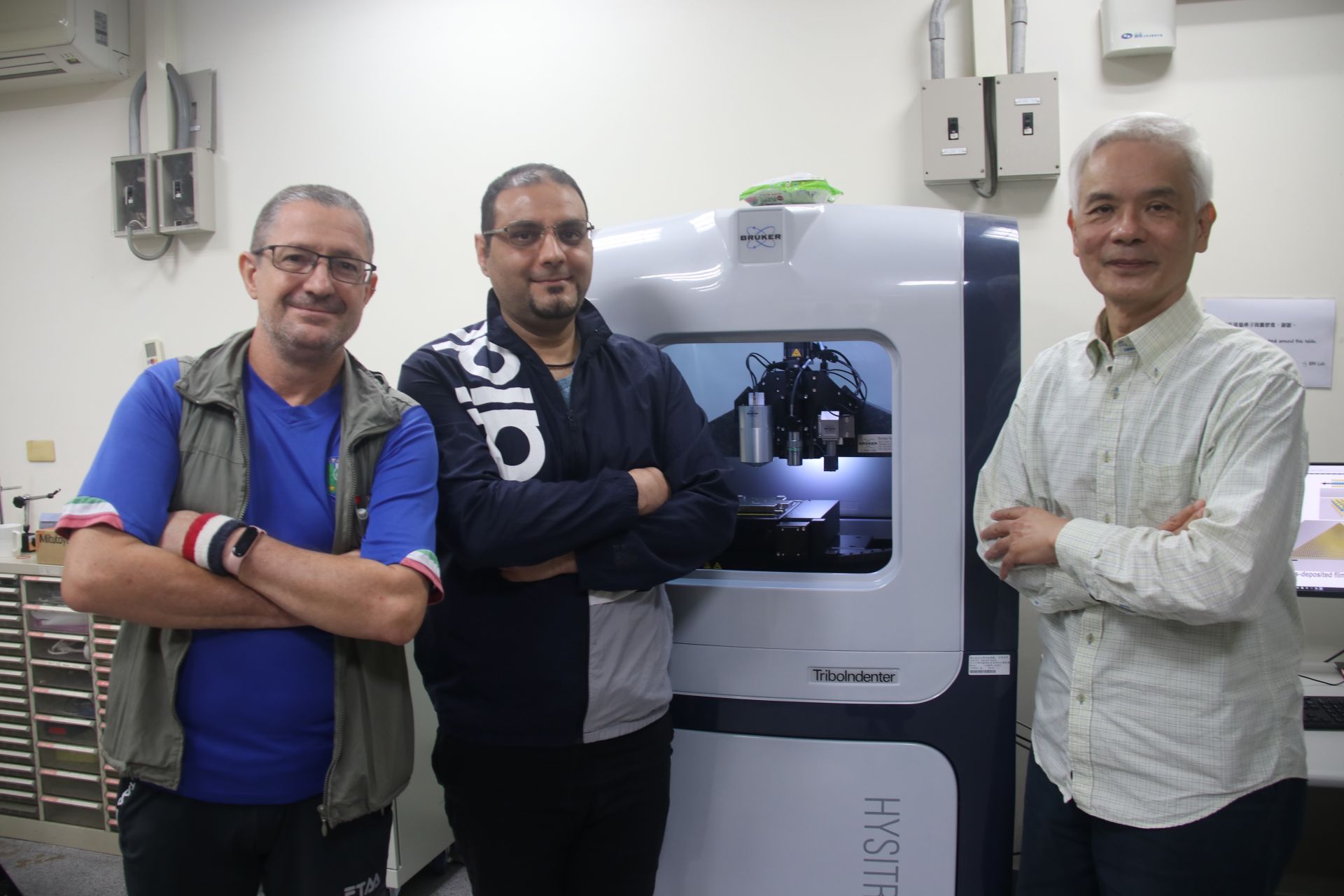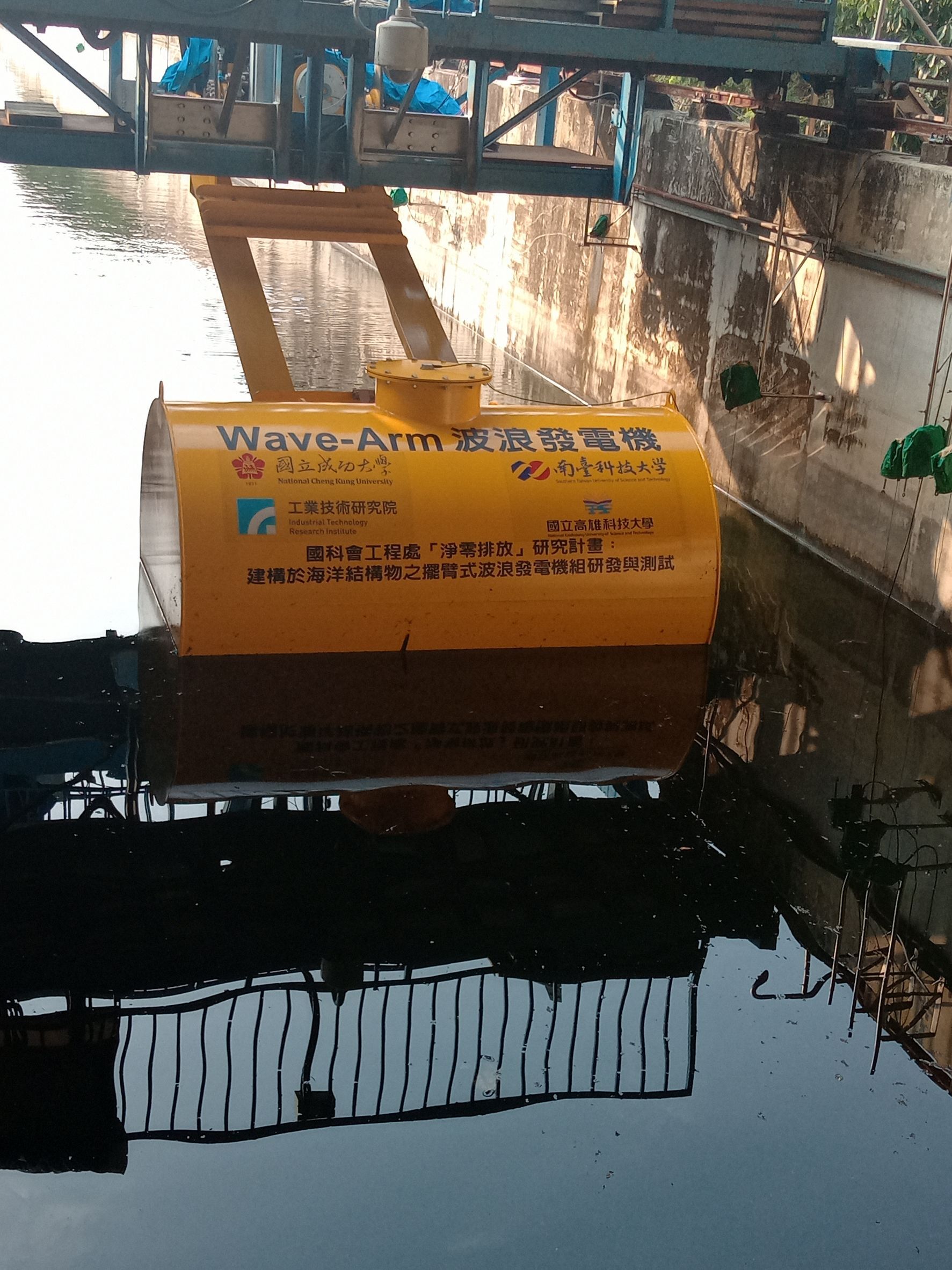SDG7
The 11th East Asian Workshop for Marine Environment and Energy at NCKU: Focusing on East Asian Marine Environmental Issues
The 11th East Asian Workshop for Marine Environment and Energy (EAWOMEN) was grandly held at National Cheng Kung University (NCKU) from January 24th to 26th, attracting over 20 international experts and scholars from countries including Japan, South Korea, mainland China, Indonesia, and Bangladesh. To allow participation for those unable to attend in person, the workshop was conducted both physically and online, drawing over a hundred domestic and international experts and scholars to explore marine environmental issues and the development of marine renewable energy technologies, with the hope of fostering more international cooperation and exchange.
The oceans know no borders, and many marine issues require cross-border collaboration, such as pollutant transport, marine debris, and ecosystems. In recent years, the development of marine renewable energy, such as offshore wind power, wave power, and tidal power, has become a core strategic issue for maritime nations.
The workshop was jointly organized by the Department of Hydraulic and Ocean Engineering and the Nearshore Hydraulics Laboratory at NCKU. Chyan-Deng Jan, Dean of the College of Engineering, welcomed the distinguished guests on behalf of NCKU, emphasizing the increasing global emphasis on the oceans and the importance of topics such as marine renewable energy development, marine disasters, marine pollution, fisheries, and maritime transportation. He expressed the hope that experts and scholars in attendance would brainstorm and discuss various marine environmental issues for the benefit of human development and Earth sustainability.
The conference chairman, Dong-Jiing Doong, Director of the Nearshore Hydraulics Laboratory at NCKU, stated that this was the third time this series of workshops was held in Taiwan. In addition to academic discussions, he encouraged young people to engage in research and suggested building academic-friendly relationships from the student stage, which could facilitate long-term cooperation and potentially bring about more research capacity.
The 3-day conference included two days of indoor workshops, with a total of 43 academic presentations. Topics addressed by experts and scholars at the conference included marine energy development, ocean carbon sequestration, marine environmental pollutant transport and ecological impacts, and marine and coastal disaster prevention and control. Many innovative ideas and results were presented using methods such as numerical modeling, hydraulic experiments, and AI analysis techniques. Additionally, the organizers arranged visits to NCKU's dedicated facilities for marine observation and testing at the Nearshore Hydraulics Laboratory and the Hydraulic Engineering Laboratory.
The East Asian Workshop for Marine Environment and Energy was founded in 2003, with Taiwan joining in 2005. The workshop is held every two years, with Taiwan previously hosting the 3rd edition in 2007 and the 7th edition in 2015. This workshop provides a platform for experts and scholars from various Asian countries to discuss marine-related issues, making it an important international conference in the field of oceanography.
The oceans know no borders, and many marine issues require cross-border collaboration, such as pollutant transport, marine debris, and ecosystems. In recent years, the development of marine renewable energy, such as offshore wind power, wave power, and tidal power, has become a core strategic issue for maritime nations.
The workshop was jointly organized by the Department of Hydraulic and Ocean Engineering and the Nearshore Hydraulics Laboratory at NCKU. Chyan-Deng Jan, Dean of the College of Engineering, welcomed the distinguished guests on behalf of NCKU, emphasizing the increasing global emphasis on the oceans and the importance of topics such as marine renewable energy development, marine disasters, marine pollution, fisheries, and maritime transportation. He expressed the hope that experts and scholars in attendance would brainstorm and discuss various marine environmental issues for the benefit of human development and Earth sustainability.
The conference chairman, Dong-Jiing Doong, Director of the Nearshore Hydraulics Laboratory at NCKU, stated that this was the third time this series of workshops was held in Taiwan. In addition to academic discussions, he encouraged young people to engage in research and suggested building academic-friendly relationships from the student stage, which could facilitate long-term cooperation and potentially bring about more research capacity.
The 3-day conference included two days of indoor workshops, with a total of 43 academic presentations. Topics addressed by experts and scholars at the conference included marine energy development, ocean carbon sequestration, marine environmental pollutant transport and ecological impacts, and marine and coastal disaster prevention and control. Many innovative ideas and results were presented using methods such as numerical modeling, hydraulic experiments, and AI analysis techniques. Additionally, the organizers arranged visits to NCKU's dedicated facilities for marine observation and testing at the Nearshore Hydraulics Laboratory and the Hydraulic Engineering Laboratory.
The East Asian Workshop for Marine Environment and Energy was founded in 2003, with Taiwan joining in 2005. The workshop is held every two years, with Taiwan previously hosting the 3rd edition in 2007 and the 7th edition in 2015. This workshop provides a platform for experts and scholars from various Asian countries to discuss marine-related issues, making it an important international conference in the field of oceanography.

The 11th East Asian Workshop for Marine Environment and Energy explored marine environmental issues and the development of marine renewable energy technologies.






















